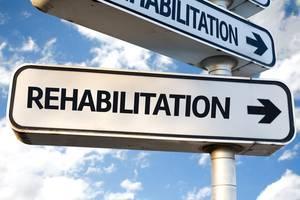Can a Person Facing Drug Charges Be Required to Receive Treatment?
 Drug addiction can be a difficult burden to bear, and it can affect both an addict and their loved ones. Unfortunately, many addicts become caught up in the criminal justice system, and they may face drug charges for possession of controlled substances, possession with intent to distribute, or drug trafficking. In addition to or instead of facing criminal charges, some addicts may be forced to undergo treatment meant to help them overcome their addictions. However, some advocates have questioned the effectiveness of these forms of treatment and raised concerns about how "involuntary commitment" laws may violate people’s rights.
Drug addiction can be a difficult burden to bear, and it can affect both an addict and their loved ones. Unfortunately, many addicts become caught up in the criminal justice system, and they may face drug charges for possession of controlled substances, possession with intent to distribute, or drug trafficking. In addition to or instead of facing criminal charges, some addicts may be forced to undergo treatment meant to help them overcome their addictions. However, some advocates have questioned the effectiveness of these forms of treatment and raised concerns about how "involuntary commitment" laws may violate people’s rights.
Civil Commitment for Drug Addicts
Multiple states have laws that allow a person to be forced to complete rehabilitation or other forms of addiction treatment. This is sometimes seen as a compassionate solution that will ensure that those who may be a threat to themselves or others can take steps to address issues related to addiction and get their lives back on track. Many family members support these programs, and they may believe that they are the only option for a person who has refused to accept help.
Unfortunately, studies have shown that these forms of treatment are often ineffective. While some may benefit from forced rehab, they are usually in the minority, and in most cases, these programs do not result in significant reductions in drug use or drug-related crimes. Some studies have even shown that involuntary treatment programs have led to increases in drug crimes and higher rates of overdoses or other negative outcomes for those who have been required forced to undergo treatment. Many advocates believe that voluntary treatment programs are much more effective, especially when a person is encouraged to work toward achieving life and career goals and receives assistance from family members.
Many involuntary treatment programs are understaffed, and they tend to treat patients harshly rather than offering encouragement and positive reinforcement. Drug rehab facilities often take a punitive approach, acting as if patients are inmates who are receiving criminal punishment rather than offering help with the issues that have led to addiction and substance abuse. Programs may put rules in place that require a person to behave perfectly while imposing harsh consequences for those who make mistakes. This can lead to a vicious cycle in which addicts do not receive the necessary treatment to avoid substance abuse in the future, resulting in additional penalties when they relapse.
In Connecticut, those who have issues related to substance abuse may be voluntarily or involuntarily committed to a treatment facility. Someone such as a person’s spouse or another relative may file an application in probate court, and a hearing will be held in which a judge will review the application and other information relevant to the case. If the judge determines that the person is dependent on drugs or alcohol and is a danger to themselves or others, they may order the person to be committed to a treatment facility for between 30 and 180 days.
Contact Our Connecticut Drug Charges Attorney
For those who are facing charges of drug possession or other related crimes, multiple types of treatment programs may be available. Voluntary participation in these programs is much more likely to be beneficial, and it may also allow for a reduction in criminal charges or the dismissal of charges after a period of probation. At Woolf & Ross Law Firm, LLC, we can help defendants determine their best options when they are facing drug charges, and we can provide guidance on how to receive the proper treatment while minimizing the potential consequences a person may face. Contact our Hartford drug crimes defense lawyer at 860-290-8690 to discuss your case in a free consultation.
Sources:
https://www.nytimes.com/2022/04/30/opinion/forced-addiction-treatment.html
https://www.cga.ct.gov/2012/rpt/2012-R-0217.htm
https://www.cga.ct.gov/current/pub/chap_319j.htm






